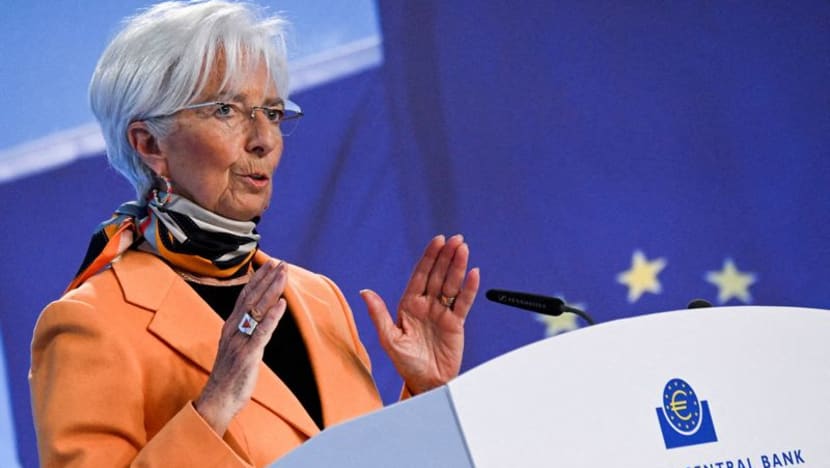Business
Foreign Workers Propel Euro Zone Economy, ECB Chief Lagarde Reports

An influx of foreign workers has significantly bolstered the euro zone’s economy in recent years, according to European Central Bank President Christine Lagarde. Speaking at the US Federal Reserve’s annual symposium in Jackson Hole, Wyoming on August 23, 2023, Lagarde highlighted that this demographic shift has helped alleviate challenges such as shorter working hours and declining real wages across the region.
Migration into the European Union has reached a record level, contributing to a population of 450.4 million in the EU last year, despite a decline in natural births. However, the increasing number of arrivals has prompted some governments to impose restrictions in response to rising domestic discontent.
Lagarde pointed out that foreign workers, although constituting only about 9 percent of the total labour force in 2022, accounted for half of the labour market growth over the past three years. She stated, “Without this contribution, labour market conditions could be tighter and output lower.” Her remarks underscore the integral role that foreign labour plays in sustaining economic activity within the euro zone.
The impact of foreign workers is particularly evident in Germany. Lagarde noted that the country’s gross domestic output would be approximately 6 percent lower than in 2019 without their contributions. Similarly, she credited Spain’s robust economic recovery post-COVID-19 to the support provided by foreign labour.
While the influx of foreign workers has provided economic benefits, it has also led to political repercussions. Many voters have expressed dissatisfaction, resulting in a shift towards far-right parties. The Alternative for Germany, for example, has gained traction as the German government suspends family reunification and resettlement programmes to mitigate domestic concerns.
The situation in the EU reflects broader global trends regarding immigration and economic growth. As countries grapple with the balance between welcoming newcomers and addressing the concerns of local populations, the economic contributions of foreign workers remain a critical factor in discussions surrounding labour markets and policy decisions.
Lagarde’s observations provide a nuanced perspective on the dynamics of immigration, economic performance, and the political landscape, highlighting the importance of foreign workers in shaping the future of the euro zone’s economy.
-

 Lifestyle4 months ago
Lifestyle4 months agoHumanism Camp Engages 250 Youths in Summer Fest 2025
-

 Business5 months ago
Business5 months agoKenvue Dismisses CEO Thibaut Mongon as Strategic Review Advances
-

 Sports4 months ago
Sports4 months agoDe Minaur Triumphs at Washington Open After Thrilling Comeback
-

 Sports5 months ago
Sports5 months agoTupou and Daugunu Join First Nations Squad for Lions Clash
-

 Top Stories5 months ago
Top Stories5 months agoColombian Senator Miguel Uribe Shows Signs of Recovery After Attack
-

 World5 months ago
World5 months agoASEAN Gears Up for Historic Joint Meeting of Foreign and Economic Ministers
-

 Health4 months ago
Health4 months agoNew Study Challenges Assumptions About Aging and Inflammation
-

 Business5 months ago
Business5 months agoOil Prices Surge Following New EU Sanctions on Russia
-

 Entertainment4 months ago
Entertainment4 months agoDetaşe-Sabah Violin Ensemble Captivates at Gabala Music Festival
-

 Entertainment4 months ago
Entertainment4 months agoBaku Metro Extends Hours for Justin Timberlake Concert
-

 Top Stories5 months ago
Top Stories5 months agoRethinking Singapore’s F&B Regulations Amid Business Closures
-

 Business5 months ago
Business5 months agoU.S. House Approves Stablecoin Bill, Sends to Trump for Signature









